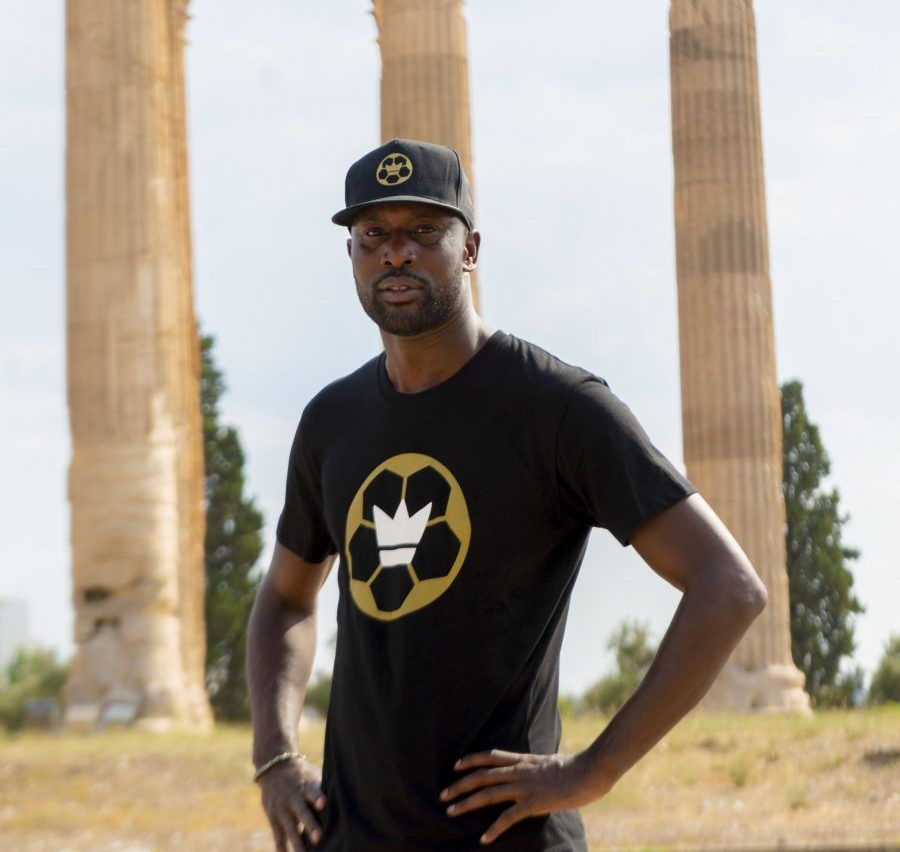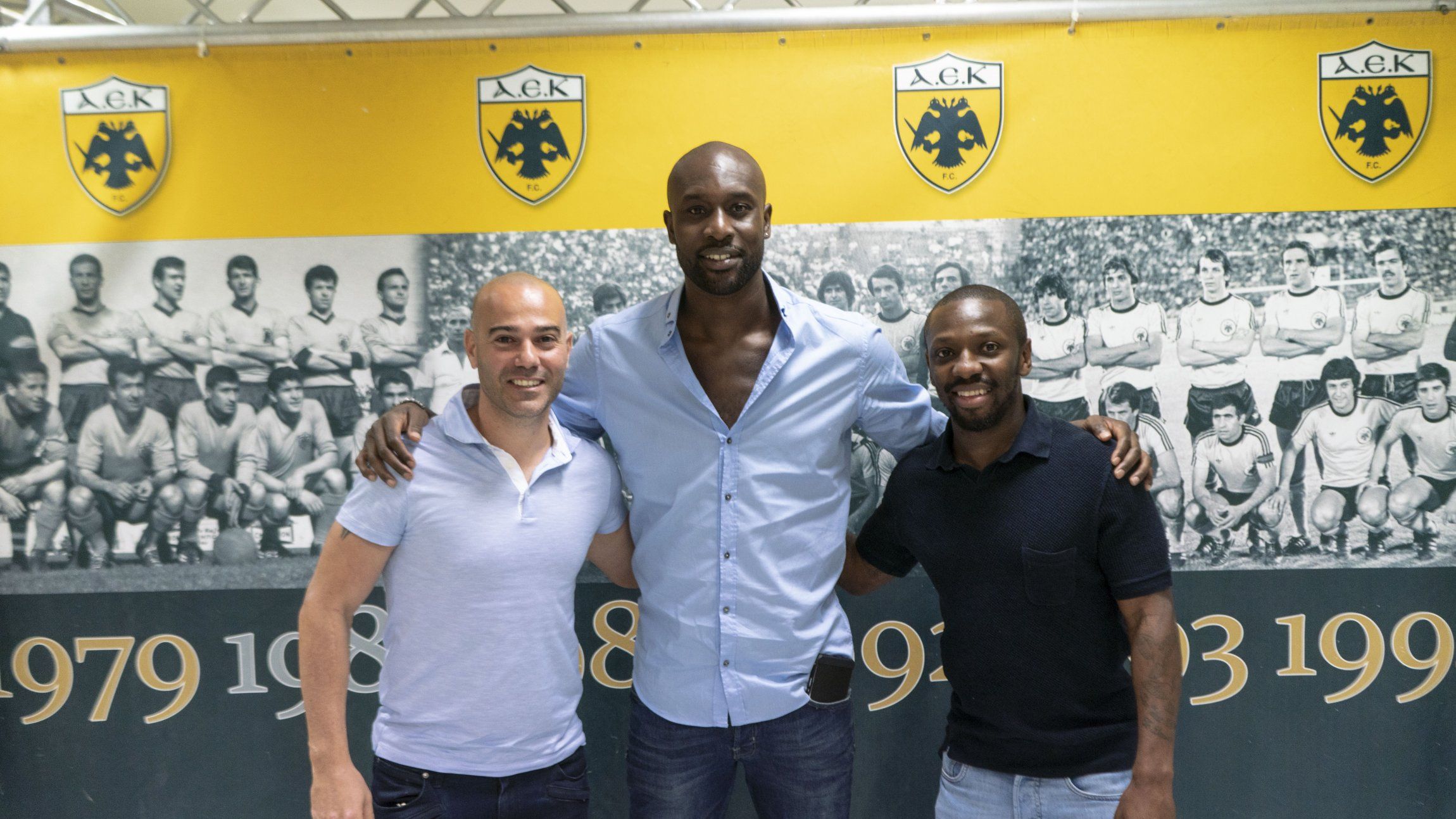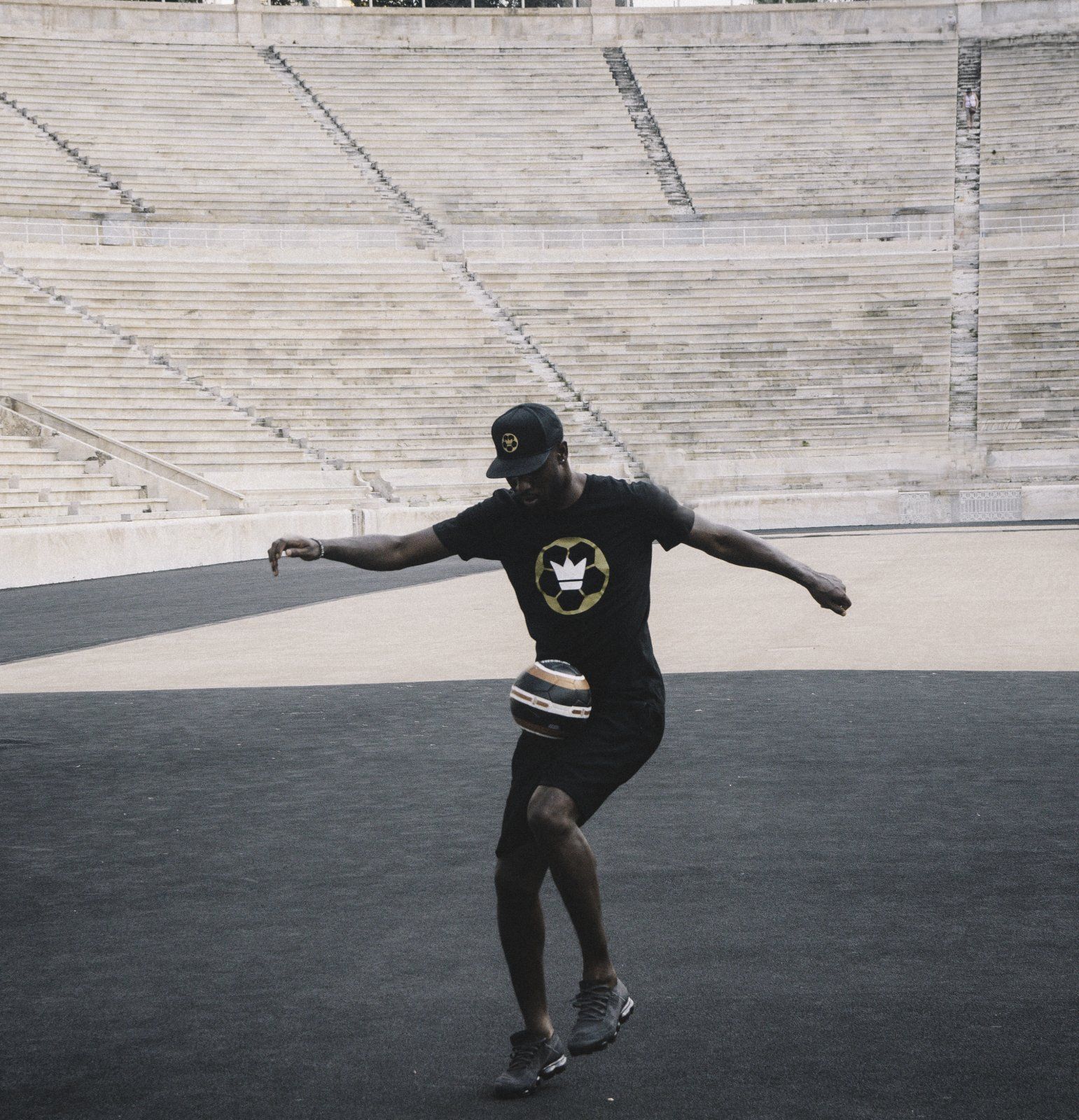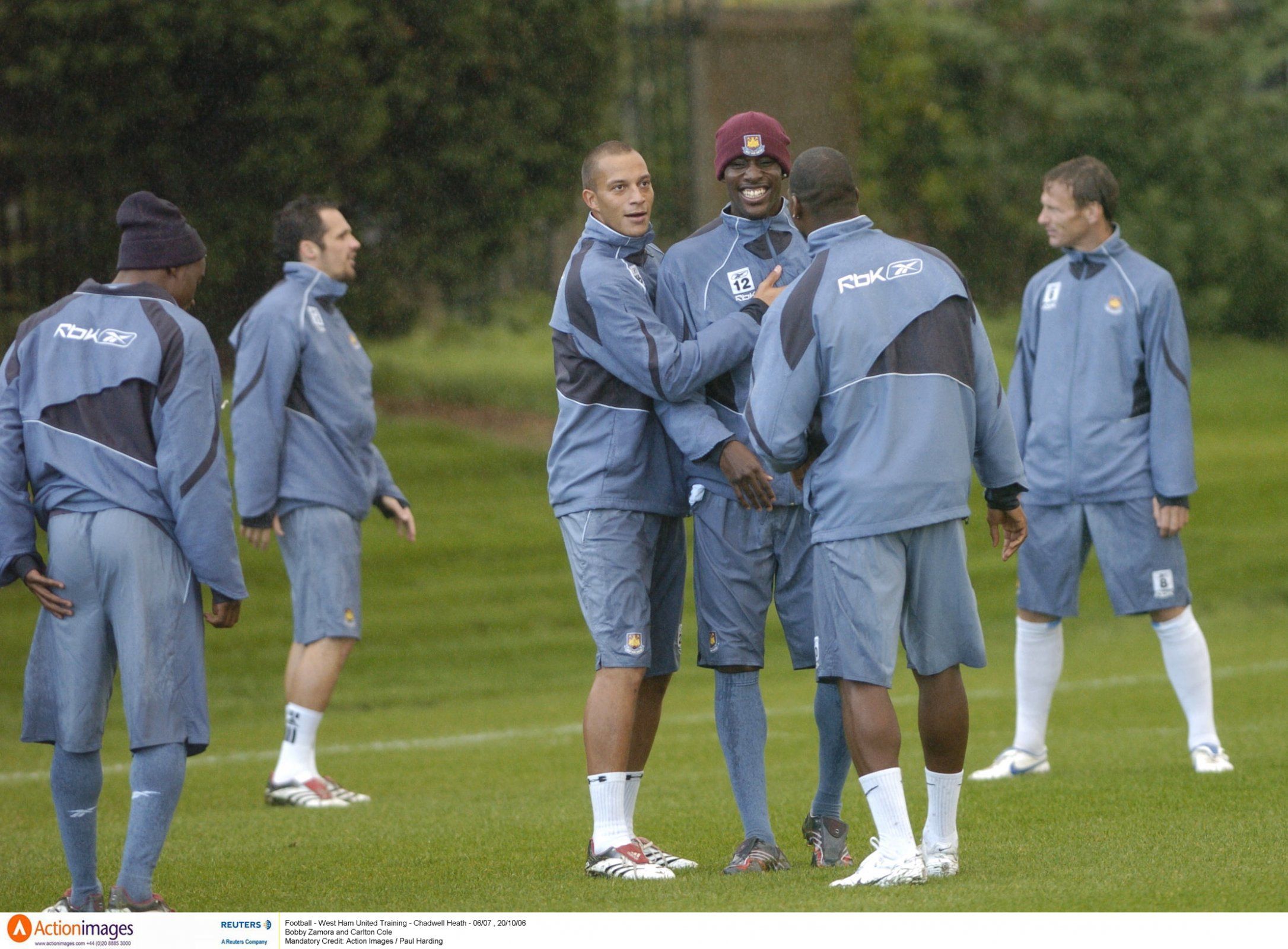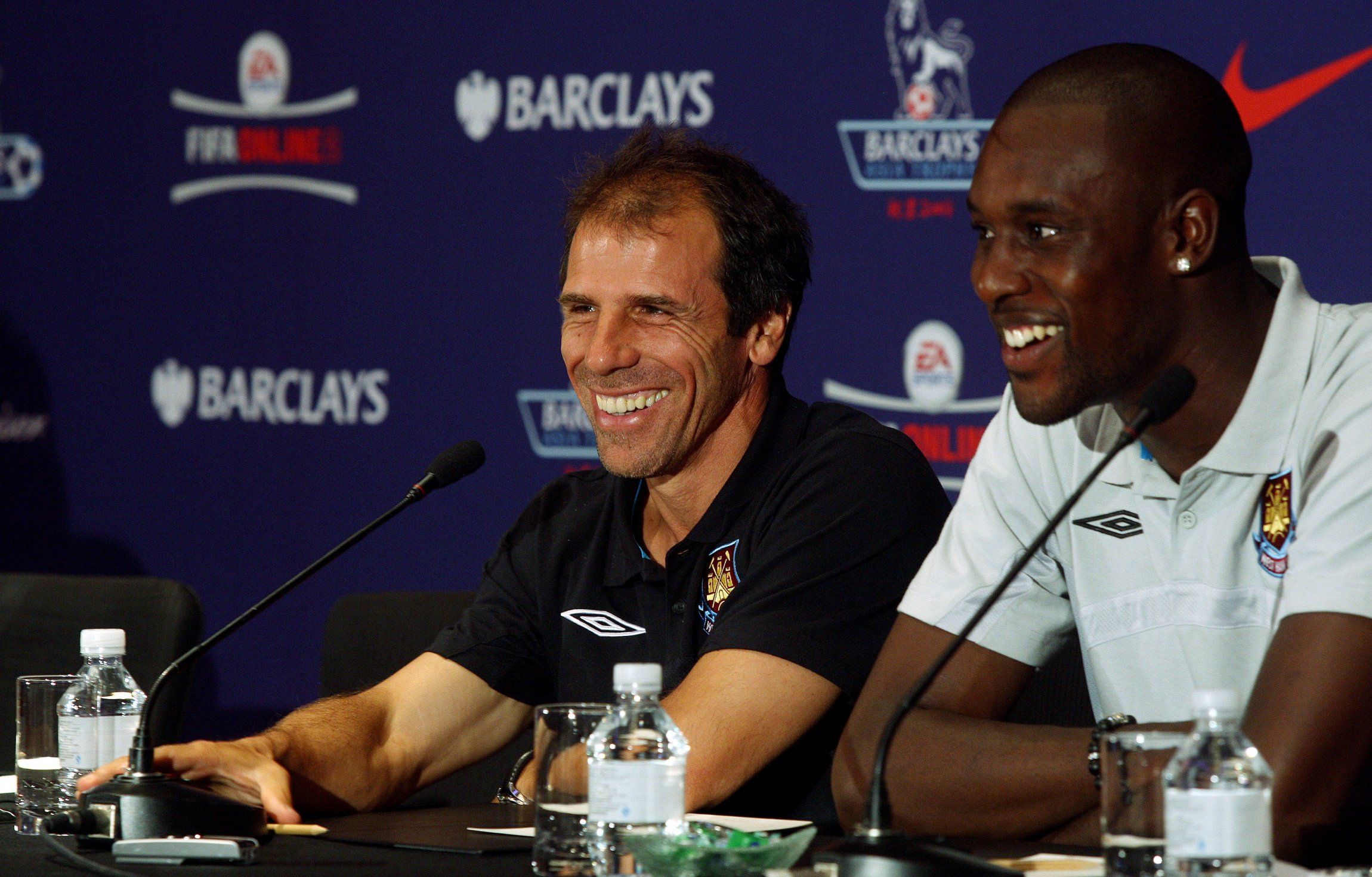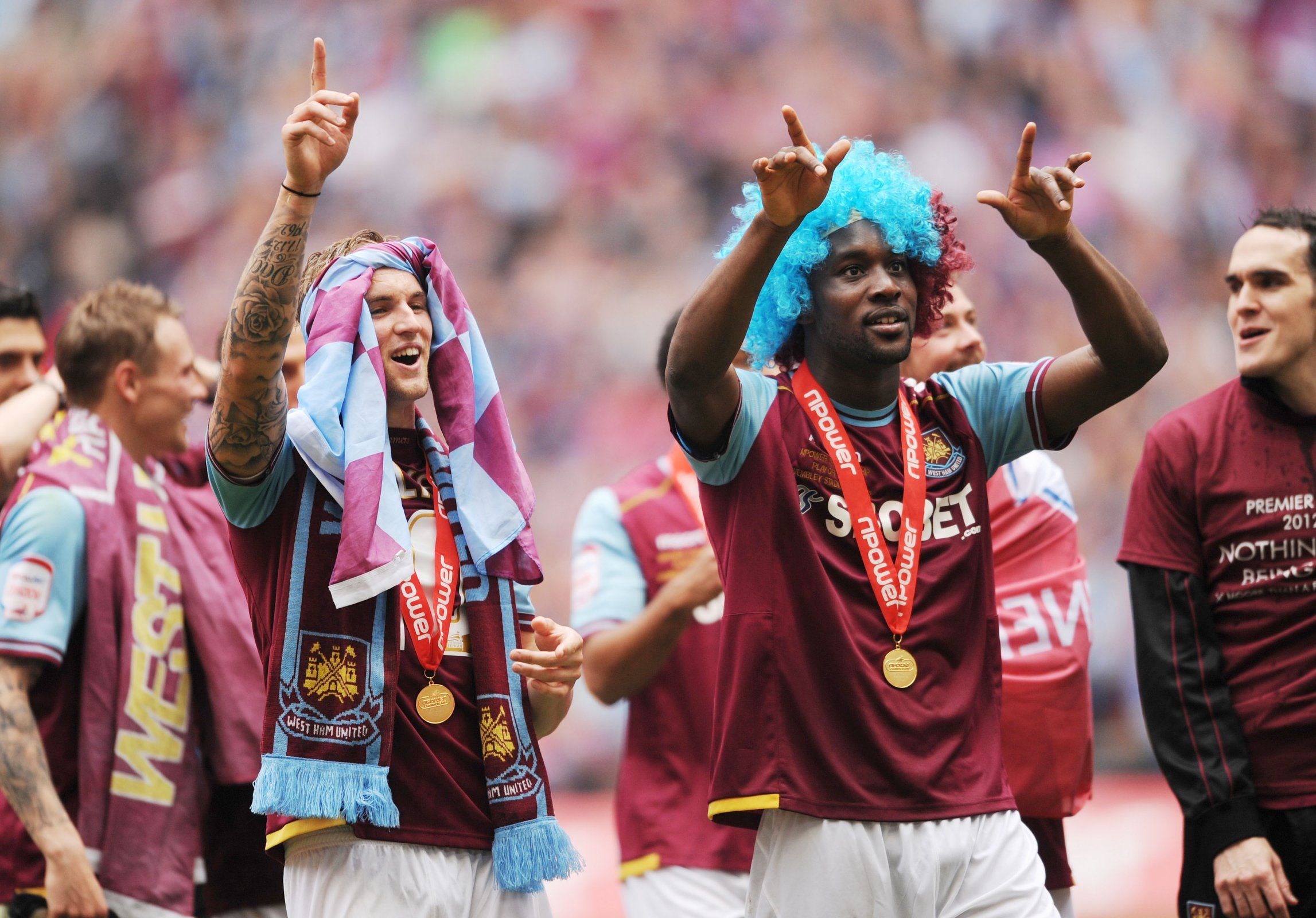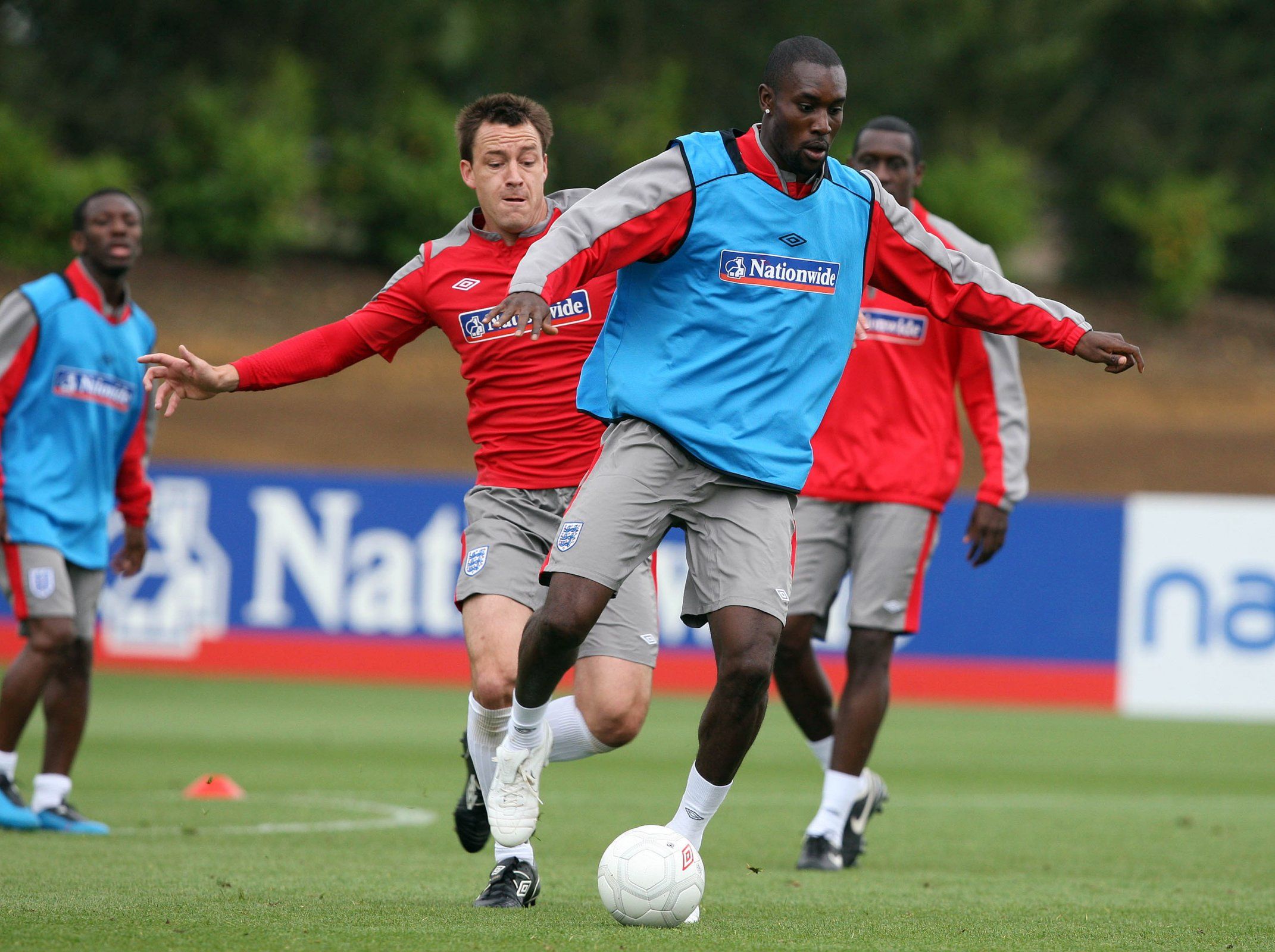To many West Ham fans, Carlton Cole has lived the dream. Over the course of nine years and two spells in East London, the striker made 293 appearances for the Hammers, scoring 68 goals - one of which came at Wembley as he played an important role in helping West Ham return to the Premier League via the play-offs.
All of that success in claret and blue is sandwiched between four seasons at Chelsea, three loan spells, stints in Scotland, America and Indonesia, and seven caps for England. Cole now is an Academy Coach at West Ham as he gets stuck into the next stage of his football career.
But, just like every other professional footballer, the journey wasn't easy and there were times when he had to really work hard for his opportunity to showcase his abilities.
It's no secret that making it in football is the dream of millions of kids around the world and it's even less of a secret that it's one of the most difficult industries to be successful in.
To make it, you need dedication, sacrifice, hard work and perseverance, and even then it still might not enough to earn a pro-contract. However, there is a new app that is designed to help footballers of all ages to gain an edge both on and off the pitch.
On The Ball is the world's best football training platform and offers users of all ages and abilities access to tailored training programs created by Premier League players, to help teach real skills and training techniques. With over 1,000 training videos demonstrated by some of the biggest names in the game, users literally have everything they need in one place in order to improve their fitness, skills and technique whenever they need it.
Carlton Cole is one of those big names and he sat down with us at Football FanCast to talk us through what inspired him to get involved in the platform and to discuss his career as a professional footballer...
What made you want to get involved in On The Ball?
"I went out to Greece with Shaun Wright-Phillips and Michael Kathapoulis, who told me all about it from top to bottom and sold it to me.
"I think it's a great project, let alone a great app. It brings people together and forms a bit of a community. I'd never heard of an app like it before, where ex-pros from different walks of life can have their own fitness and coaching programs.
"It offers players and coaches of all abilities to experience what it takes to be a pro and the app has different levels, from amateur to semi-pro to elite. Users can choose the level they want to test themselves at then work hard to improve from there.
"And us players can also tell our stories, via interviews available in the app, which are told in a way that a receivable for people who aspire to make it in the game."
Do you think an app like this would have benefitted you when growing up?
"If I had something like On The Ball growing up I would've had an insight into what it takes to be a model pro and see what the training is like, even learning how and what to eat.
"I didn't have anything like that growing up until I got into Chelsea's academy, although even then it was still a bit old school. Players smoking and drinking, not eating properly, it was still a bit in the dark ages and I thought that all that was ok. But then when Claudio Ranieri came in and then Jose Mourinho, they gave us a whole different perspective of how to be a pro.
"Before I arrived at Chelsea I'd never touched a gym and never considered what I needed to eat in order to make me a better professional.
"So if this app had been around when I was young I would be Cristiano Ronaldo by now!"
What did you do to get an edge over your teammates when growing up?
"I grew up on an estate in Brentford called Green Dragon estate and in the summertime, or after school, we would always go down to this place called the Pit and that's where we played our five-a-sides, a bit like futsal. That's where I started getting fit, getting a little burst of pace, building strength in small-sided games.
"But also knew that I needed stamina, so I used run to school. My school was three of four miles away from where I lived and I would walk to one lampost and then sprint to the next lampost. I would continue that all the way to school and then did it on the way back home after.
"I ended up getting a bit of a following and my friends got involved, too. That's how I gained my fitness and by the time I arrived at Chelsea I was fitter than everyone else.
"And I used to be a central midfielder back then, so I had to be fit and have the legs on me!"
Now you're an Academy coach at West Ham, do you find some of the coaching techniques you benefitted from as a youngster are now rubbing off on your coaching style?
"I've had to re-educate myself a little bit. The way I was coached is different to what I'm coaching now. The times and mood change in football, so you have to adapt.
"Obviously the basic stuff like shooting across the goal incase the 'keeper parries it out for a teammate to tap in, that still gets coached.
"But now, these kids know about all of that from a very young age because they're being taught it already, probably by YouTube!
"I'm still learning - my partner Gerard Prenderville is such a top coach and I'm learning lot from him. Mark Phillips and Jack Collison are there as well. When I started I didn't really know what I was doing, I didn't know how to get my message across to the kids, but they've all taken me under their wings and really helped me.
"Seeing what you've learned in the past and then trying to implement that into your coaching style is two very different monsters, you can't really comprehend how different it is. You've got to learn about people skills, learn how to help a youth who is struggling or even as a team, talking to a whole bunch of boys who are pinning all of their hopes on your every word.
"When you've got responsibility for someone else's kids, it's totally a different ballgame. And these kids are waiting to make it, they want it, and they're not stupid. If you're not talking sense, they won't take you seriously, no matter how respected you are in the game. If you can't help them make it, they don't want to know about you."
How do you teach the mental side of the game to youngsters?
"As a footballer you've always got to know how to take setbacks. For some footballers, their careers are plain sailing. They get into the first team and then never leave, they're never dropped. But there's a path to get to that stage where you're going to get knock backs and you're going to get disheartened.
"I'm there to help give advice with these scenarios. I've been through it all - I got to the top and then came back down. So I know both sides of it. So I try and help the kids prepare mentally for that, but also to be there to help if they're having any problems at home.
"I'm a mentor and a coach. The best managers and coaches today are ones who can relate to all sorts of scenarios and environments and on thing I've had to learn most over the last year is how to approach these kids and help them in the best possible way I can."
When you arrived at West Ham you were told some strikers would be sold but it never happened - how did you deal with and what did you do to get an edge over the others?
"I was thinking, hold on, I've been tricked here, why are these players still here!? I thought I was going to be one of three or four but now I'm one of six!
"I had been at Chelsea and already knew what it takes to be a top striker because I was around the likes of Gianfranco Zola, Jimmy Floyd Hasselbaink, Eidur Gudjohnsen, Hernan Crespo and Didier Drogba.
"Having had all these big strikers around me for all those years, I knew in my head that I'd won that battle and I couldn't let it affect me, I just had to be the best I could be.
"I knew I was good enough to be in the Premier League but I knew I had to be better than the others. Dean Ashton, Marlon Harewood, Carlos Tevez and Bobby Zamora were all top players but I knew I had been around bigger players in my career before. That gave me the confidence to be better than them - maybe not Tevez because he was on another level!
"So in training, I just trained harder and stronger. I knew I had to come out on top against these players in training and in the finishing sessions. In those situations, it forces the greatness to come out of you. That was my mindset."
Alan Curbishley replaced Alan Pardew midway through your first season at West Ham - was that a worrying time for those who thought their position in the team was safe?
"When you're the main man you're always worried! You're always looking over your shoulder. Once you get comfortable in football you're going to go downwards.
"When the manager changed, I was kind of relieved because I wasn't really getting in the team as much as I wanted to under Pardew and obviously he had his favourites.
"When Curbishley came in he didn't take to me as I thought he would, but only because I was supposed to go back to Charlton for a second loan season from Chelsea and I chose not to do the second year. He held that against me, I know he did.
"He tried to get rid of me and Paul Konchesky straight away when he came in, because Konch had a bust-up with him before he left Charlton.
"Shortly after he came in there were a load of injuries, after we stayed up at Old Trafford. He wanted to get rid of me that summer but I did well in pre-season and managed to get a chance. Teddy Sheringham left, Dean Ashton got injured on international duty, so suddenly there were spaces open for me and I knew then I had to graft.
"All I wanted to do was leave an impact so they would always miss me if I wasn't playing. I needed a run of games, all young players need a run of games to get momentum. I needed to make sure I was invaluable to the team and to my teammates and that's how I got in the team, then the goals came after.
"Curbishley then saw that he'd got me playing the way he wanted and he couldn't drop me after that."
Sam Allardyce then came after West Ham were relegated - do you think you played your best football under him having scored 15 goals that season?
"No, I think I played my best football under Zola. Sam played me in a different way than Zola, he used me more of the big man up top, an aerial threat.
"But Zola used me more as a footballer because as a team we were playing good football on the floor. My goal away at Wigan Athletic is proof of that, I think.
"Under Allardyce in the Championship, I could've gone to Stoke and stayed in the Premier League but I didn't think it was the right thing for me to do. I knew I had to stay at West Ham to try and get them up but Allardyce did want to get rid of me!
"But I said I wasn't going anywhere, even though he didn't really trust me. But then we had a midweek game at Watford and I started because he had to rotate the team, and I scored. That was the start of me being first choice again because I started scoring goals. He couldn't drop me either but I had to battle to stay there.
"The only time I didn't have to battle to stay in the team was under Zola because he had faith in me, whereas under Allardyce I had to change my game in order to stay in the team."
What was it that really connected you with West Ham the most?
"That Championship season. The fans knew I had taken a 50% pay cut just to play that season and I knew that if I'd stayed and gave my all they'd respect me for that.
"I always gave my all, I always tried my very best. I wasn't the captain but I tried to be a captain in my own way, I tried to leave everything on the field and even played through injury. That's when I think the fans realised I was with them through thick and thin.
"I realised as well, as long as you give your all the pitch for the club, because that's what any fan would do, then they'll take you in as one of theirs. It's all they ask.
"No matter what any footballer says, they always want a home. I'd left West London with Chelsea, that was my main home, but when I came to West Ham I had it good. I put in the years there as well, so I didn't want the fans to think I was only there for the money - I've got too much pride to do that.
"The West Ham fans soon realised I was one of them, I had a good rapport with them. I always tried to speak to them, sign autographs, I did a lot in the community with the locals. I'm one of the fans now and I don't think that's ever going to change because I'm like part of the furniture!"
What were the differences between training at club level and the training with the England team?
"I thought international football was easier. I played for the U21s and U19s so I knew what to expect when it came to the international set-up, whereas some players go straight into the first team and it can be a bit of a culture shock.
"But when you had the likes of David Beckham, Rio Ferdinand, Gary Neville and Wayne Rooney, you just knew the quality in training was going to be high. It was fascinating to see how good they were.
"When you're a striker, the onus is on you and I just knew I could get in that team. But I think I was in the squad for four years, I trained really hard, but getting game time was a completely different animal and it was harder to come by. I was in most of the squads but wasn't playing that much, which I found difficult.
"That was a different challenge for me mentally because there were times when I got called up and I didn't want to go anymore because I knew I wasn't going to play and I was just there to train.
"But it was a privilege to be there and I've made some great friends through doing that. I'm doing stuff with the FA now, too, and they want me to help with some of the coaching with the younger generation, so in the end all that helped me be the man I am today."
Does it make you a better player when training with the best players at international level?
"I don't think it makes you a better player. It makes you aware of the standard of where you need to stay at, because that's the elite level, being the best in England.
"What makes you a better player is training day in, day out with your football club. That's what makes you a better player. Because that's when you have to drive yourself every day, no matter what. Every day when you go away with England, it's more of a holiday camp away from the grueling training and pressure of everyday life at club level.
"With England, you've got a different focus. Now you're an elite player, now you're around good players and you've got more confidence because you wouldn't get picked if you weren't good enough.
"Obviously, people would look at differently from the outside, but it's not like that. It's more relaxed when you go away with England, but the only hard thing there is that you have the expectations of the entire country on your head.
"It's an overwhelming pressure but the everyday stuff at club level is much more grueling."
You're really enjoying your coaching at the moment - any plans to move into management?
"When I started coaching at West Ham, when I wasn't confident, I wasn't sure it was for me. But now I'm getting better at it. I wouldn't say I'm a natural but I've got a knack for it.
"When you talk to other pros and see what their views are, you realise you're in the same boat because they're not sure either.
"Obviously some go straight into it, like Frank Lampard, but you've got to have that smell for it and know that you want to do it all the way, otherwise there's no point doing it.
"John Terry's definitely going to be a manager, he's manager material, and I'm looking at him and realising I've got a long way to go.
"I don't know whether eventually I'd want the number one job but I wouldn't mind being an assistant or one of the first-team coaches, doing it without all the pressures of being a head coach.
"At the moment I'm really enjoying helping develop the next generation of footballers, but I wouldn't rule it out in the future."
Lastly, what do you think needs to happen with football during the current pandemic?
"I'm taking my West Ham and Chelsea tinted specs off and looking at it from a humanitarian point of view. Right now, football is not important.
"It's not right to go back to it when it's not safe. We don't know what's going on, we don't know if there's going to be a second wave. The players are human beings, they've got families. We haven't got the right testing kits right now to be sure these players are going to be safe, so how can we go into this blindly and potentially spark something really deadly?
"We have to be sensible at the moment and football is secondary. Life is the main thing right now. We need to get to a stage when it's safe to do things.
"Footballers wearing masks doesn't make sense because they're still going to sweat all over each other. So how can you expect a player to go out there and not be vulnerable to this disease?
"Unless you're testing every day, and I doubt they're going to spend that kind of money in football when the NHS needs it more. The NHS is the most important thing at the moment, not football. Everyone wants everything to get back to normal but we won't get back to normal if we rush it.
"The best thing to do is null and void it but in a situation like this, how can you have a normal scenario? Something has to give, it's not going to be perfect, someone is going to be upset.
"I'm not saying null and void it because I don't want Liverpool to win the league or Leeds to get promoted, I just don't care about any of that anymore. Not while more important things are going on.
"Who would want t0 win the league like this anyway? Surely you would want to win it properly, with 100% of matches played? I wouldn't want to win the league like this, definitely not!"
To be a better player or coach, improve your fitness and develop your ball skills with On The Ball, download the App on Apple and Google Play now!

